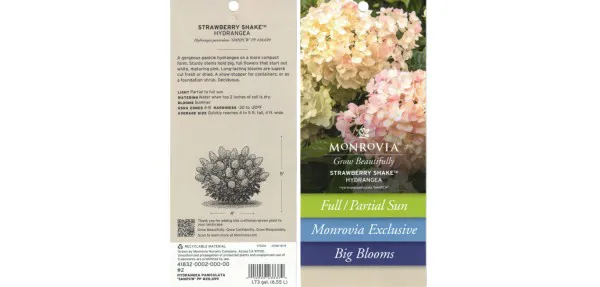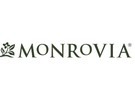For decades, Monrovia has used an information-packed plant label in a booklet format. But this spring, the company is redesigning its labels to reduce the use of plastic material in tags by about 60%. The new design features simplified plant information and a QR code gardeners can use for more guidance online. The QR code leads directly to each variety’s unique page on Monrovia.com, offering planting and care tips as well as usage inspiration and company history.

There will be two variations of the design for Spring 2023. 2-gallon and larger-sized plants will feature a new flat, two-sided tag. 1-gallon plants will now have a reduced-size, two-sided tag that does not hang down below the pot.
“Part of helping consumers Grow Beautifully is to also Grow Responsibly,” says Jonathan Pedersen, president, and chief executive officer of Monrovia. “Growing Responsibly is not just a slogan. We are committed to reducing our carbon footprint over time. This change to our tags is an important step.”
Sustainability has long been a priority for Monrovia. In the 1970s, the company became the first major nursery to recycle irrigation runoff, drastically reducing water and fertilizer use. Monrovia is also a proud recipient of the Environmental Protection Agency’s prestigious EPA Evergreen award. This award recognizes outstanding pollution prevention efforts. This year, Monrovia is undertaking a companywide assessment of its greenhouse gas emissions and establishing goals for reductions by 2030. The company is focusing on many areas of its operations, including research on reducing plastic in pots and testing biodegradable plastic materials, installation of energy-efficient greenhouses and boilers to reduce fuel use, and increasing efficiencies in loading practices. “Our goal is not only to improve our own practices but to add to our industry’s positive influences on the environment,” adds Pedersen. “We’re continuing to build a culture of sustainable practices at all of our nurseries.”
For more information:
Monrovia
www.monrovia.com
